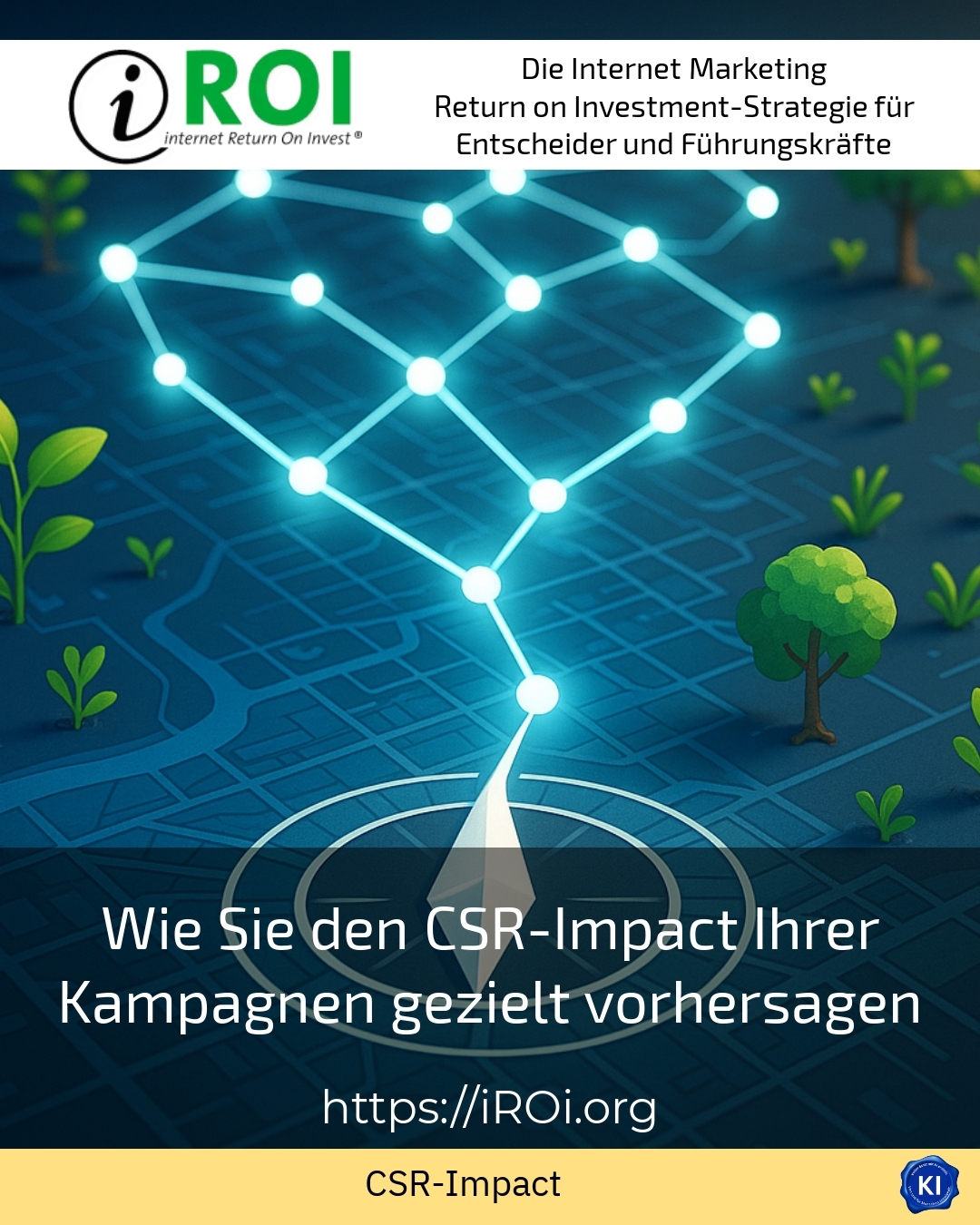CSR impact is becoming increasingly important for companies in order to manage and predict the success of socially responsible campaigns. Companies want clear methods with which they can assess the specific impact of their initiatives on society and the environment. This is precisely where a structured approach to CSR impact comes in, taking into account both qualitative and quantitative factors.
What does CSR impact mean and why is it crucial?
The term CSR impact describes the measurable effects of social, ecological and economic projects that a company integrates into its communication and marketing strategies. This is not just about external image, but about real changes that achieve sustainable effects. More and more companies are recognising that an authentic CSR impact creates long-term trust and strengthens brand loyalty.
Practical examples show that CSR initiatives can lead to better employee retention or bring about direct improvements in the community through local involvement. Unilever, for example, integrates sustainability deeply into its business model and regularly reports on progress, making the CSR impact of its campaigns visible. Starbucks has had similar success with programmes to support coffee farmers and youth work in the regions in which it operates.
How can the CSR impact of your campaigns be specifically predicted?
In order to accurately forecast the CSR impact, companies should proceed systematically and observe the following steps:
1. define clear goals
Every project requires specific, measurable objectives. For example, do you want to reduce CO₂ emissions, increase employee satisfaction or promote education in a region? The definition customises objectives to your values and strategy.
A large energy company agreed clear emissions reduction targets and worked with local communities to assess the impact before the campaign started.
2. select relevant key figures
Appropriate KPIs (key performance indicators) are essential. For environmental projects, these could be tonnes of CO₂ emissions avoided, for example. In the social sector, indicators such as the number of jobs created or participation rates in volunteer programmes are suitable.
Employee surveys were introduced at the technology company in order to measure the impact of CSR measures on the working atmosphere.
3. systematically record and analyse data
The continuous collection of data during and after the campaign makes it possible to recognise trends and evaluate the CSR impact in line with the defined goals.
For example, by analysing donation data and volunteer hours, a large retail chain was able to calculate the social contribution of its initiatives and sharpen it for future campaigns.
CSR impact in practice: examples from various industries
The positive influence of CSR can be seen in various areas of the company:
- Automotive industry: Sustainable material procurement reduces environmental impact and increases reputation among environmentally conscious customers.
- Food industry: Partnerships with local farmers improve their living conditions and at the same time ensure the quality of the raw materials.
- Service sector: Programmes to promote equal opportunities and diversity increase attractiveness as an employer and improve the working atmosphere.
BEST PRACTICE with one customer (name hidden due to NDA contract) A medium-sized company from the consumer goods sector relied on a school project for environmental education. Using targeted metrics, it was already able to determine during the campaign that awareness of recycling among pupils increased by 40 per cent. Teachers also reported a significant increase in interest in environmental issues, which was a valuable qualitative indicator of the CSR impact.
iROI coaching as support for managing CSR impact
iROI Coaching provides companies with professional support in the planning and implementation of their CSR projects. It provides impetus to strategically position CSR measures and precisely analyse their impact. Many clients report that this support has significantly increased the predictability of CSR impact and that campaigns can be designed to be more effective in the long term.
How to ensure the long-term success of your CSR impact
Start by integrating CSR into your overall corporate strategy. Relevant key figures should not only be collected for individual projects, but on an ongoing basis and included in management decisions. Communicating the CSR impact to stakeholders also strengthens credibility and promotes the commitment of all those involved.
Avoid superficial commitment that is quickly perceived as „greenwashing“. Instead, focus on sustainable impulses that make a measurable contribution to the common good.
My analysis
Today, CSR impact is an indispensable factor for sustainable brand development and the social legitimisation of companies. Through targeted prediction and measurement of impact, organisations can not only better achieve their social and environmental goals, but also strengthen trust among customers and employees. The combination of clear objectives, suitable key figures and continuous evaluation is the key to an authentic and effective CSR impact. iROI coaching offers competent support in this area to effectively manage and optimise CSR projects.
Further links from the text above:
The Impact of Corporate Social Responsibility (CSR) in Modern Marketing
How to Measure Corporate Social Responsibility (CSR)
A Marketing Perspective on Corporate Social Responsibility
A Comprehensive Guide to CSR Impact Evaluation for Effective Project Implementation
Measuring CSR: Key Challenges and What You Need to Know
For more information and if you have any questions, please contact Contact us or read more blog posts on the topic internet Return on Investment - Marketing here.
















